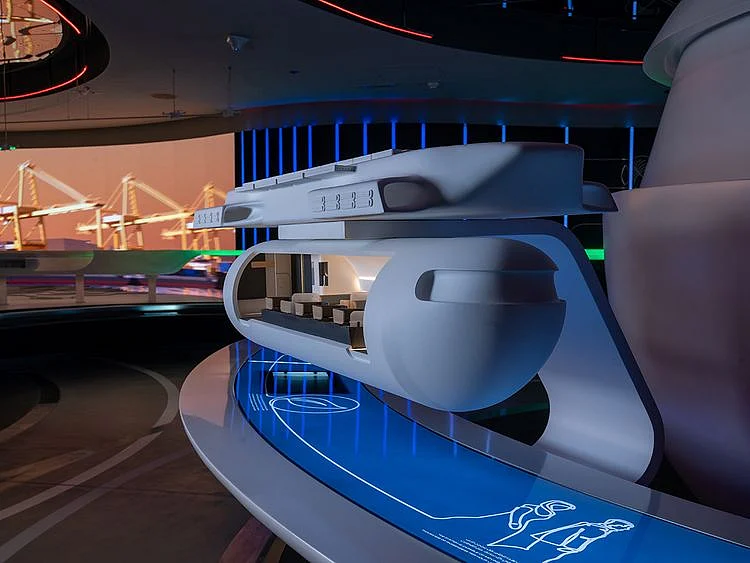With Dubai-owned DP World's push, Hyperloop to soon enable Dubai-Abu Dhabi cargo transport in minutes
US-based Virgin Hyperloop brings forward cargo delivery launch plans by 5 years

Also In This Package
Dubai: Virgin Hyperloop – the company behind a next-gen technology that aims to drastically cut down transportation times – now plans to commercially launch its cargo services by the middle of this decade rather than the early part of the 2030s. The hyperloop concept promises travel times between Dubai and Abu Dhabi into 12 minutes rather than the current hour or longer.
The decision to bring forward the cargo services launch was taken after the main shareholder in US-based Virgin Hyperloop – the Dubai Government-owned DP World – made a strong case for doing so. DP World’s push is directly linked to the ongoing global supply chain “logjams” set off by the pandemic, according to a senior official at Virgin Hyperloop, which has its headquarters in Las Vegas.
“Cargo ships and containers are held up at ports worldwide; and what was usually being sent by trucks is now being shifted onto short-haul flights,” said Ryan Kelly, Vice-President of Marketing and Communications at Virgin Hyperloop. “It’s adding to cargo costs, creating delays and more cargo flights mean it will be terrible for the environment.
“DP World’s recommendation to the Virgin Hyperloop Board was the cargo side of (hyperloop-enabled) transportation should be fast-tracked to offer a solution to handling future supply chain needs.”
Change at the top
In another decision, Virgin Hyperloop has nominated current CFO Raja Narayanan to be its interim CEO. He will take over from Josh Giegel, who is also the founder of the company. Narayanan will continue to be CFO. Narayanan holds a master’s degree in computer science from University of Louisiana, Lafayette, and dual bachelor’s degrees in engineering and physics from the Indian Institute of Science in Bengaluru and the University of Chennai. He is a co-author of six wireless networking patents that have been granted by the US patent office. Before joining Virgin Hyperloop, Raja was at Hyundai-Aptiv Autonomous Driving Joint Venture, focused on commercializing L4 autonomous driving technology. He was part of a broader executive team at Aptiv that led to the creation of the joint venture (JV) valued at $4 billion.
Push to reality
In recent months, Virgin Hyperloop has gone through several proof-of-concept tests at its sprawling facility just outside of Las Vegas, including one using passenger pods. The transportation is built on several of these pods moving through a high-speed elevated channel between destinations, using solar power as the propellant.
Got the funds
In November last year, Virgin Hyperloop became the first to ferry passengers in a trial run, and which brought further attention on the project’s development. Now, with DP World putting its considerable weight behind speeding up the cargo side of the operations, the project should kick up a gear or two.
As for the funds needed, “We are stable from a funding perspective,” said Kelly. “There is no need for any immediate new additions. We have the stable runway in place to bring this technology to market.”
Las Vegas tests
Much of the testing ahead of commercial launch will continue to be done at the purpose-built Las Vegas site. Some of the other logistics aspects could be conducted in Dubai, according to Kelly. “The whole project rollout will be intimately connected to the DP World’s vision of rearranging global supply chain requirements,” Kelly added.
Passenger push to continue
Delivering passengers on hyperloop-charged pods remains part of the part, and will continue to evolve as per the earlier plan of sometime by early next decade. Plus, whatever works on the cargo side will find its way into any future passenger operations too.
Network Links
GN StoreDownload our app
© Al Nisr Publishing LLC 2025. All rights reserved.